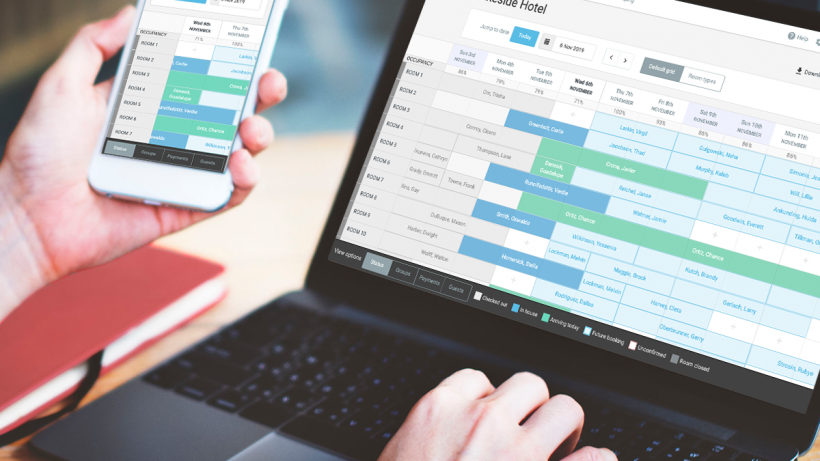Most if not all industries are inherently competitive. One sector may have hundreds of major players, so a company may also deal with hundreds of competitors. After all, governments often frown upon monopolistic competition. But it’s one thing to accept competition as a business reality and another to try to learn from it.
At its core, competitor monitoring is the process of learning from the competition. Companies must strike a balance between observing what works for competitors and getting insights from their mistakes. For this reason, competitor monitoring is among the most crucial marketing activities that affects an organization’s marketing strategy.
4 Reasons Why Competitor Monitoring Is Important
Theoretically, everyone knows that competitor monitoring helps shape business strategies. However, companies could be too tied up with their own products and challenges to examine what and how their competitors are really doing. Sometimes, competitor analysis only comes up when building the marketing mix, particularly when it comes to pricing. To provide some perspective, here are four specific reasons why organizations should ramp up their competitor monitoring strategies.
1. Discover Unexplored Revenue Streams
Competitor monitoring enables companies to study what others are doing to generate revenue. You get to know their products and services, some of which you may not have explored yet. Competitor monitoring could lead to product diversification, eventually helping you increase your revenue.
It could also help you discover untapped markets and customer bases. For example, if a competitor is launching a product in some countries in Asia, shouldn’t you also be conducting market studies to see if such an expansion could work for you?
In the past, it would have been next to impossible to find out early if competitors plan to launch new products or branch out to other locations. But the advent of the Internet has made that easier. Providers like this can keep you updated on competitors’ new domain names that could hint at new product lines. You might also want to be on the lookout for the official domain that a competitor registered using other country-code top-level domains (ccTLDs), as these could mean it is tapping new geographical markets.
2. Envision Competitor Strategies
Another reason why competitor monitoring is important is that it allows you to predict other market players’ plans. If you can envision their strategies, you will encounter fewer surprises and respond quickly and appropriately. You can already calculate the impact of planned partnerships and product launches on your company. By doing that, you can also formulate strategies that can help lessen the effects.
For example, if you know that a significant competitor plans to partner with a supplier, you can plan for the possibility of price decreases. You can start strategizing and looking for ways to lower your prices, too, or offer more value to customers at the current prices.
3. Avoid Making Expensive Mistakes
In business, learning from other companies’ experiences is a less costly teacher. When you closely monitor competitors, you can gain insights from their failures to avoid replicating them. Brick-and-mortar stores, for example, can learn from Macy’s, Sears, and other retail companies that failed to adapt to the demand for online shopping.
Businesses can also learn which suppliers and agencies they can trust and which ones to stay away from through competitor monitoring. Competitor keyword monitoring may keep you from paying for keywords that didn’t work for your competitors in online marketing. It also keeps you updated on competitor content that received backlash from target markets, helping you avoid making the same mistake.
4. Learn about Industry Trends
Companies need a bird’s eye view of what’s happening in the market. Otherwise, they could get left out and be in danger of obsolescence. Take Blackberry, for example. While the mobile phone industry started developing phones with larger touchscreen displays, Blackberry focused on other things and kept its arched keyboard. The result? From 33% in 2011, Blackberry’s market share is now down to 0.01%.
One of the reasons why competitor monitoring is important is that it lets you see emerging trends. With insights from the process, you can study, plan, and shape your strategies around worthwhile trends.
Competitor monitoring requires more than just skimming through the prices of competing products. Using certain tools and intelligence sources, you can listen to your competitors’ plans and strategies, allowing you to gain more insights and effectively shape your own strategies.
We made it easier for you to remember the importance of competitor monitoring, too. When you find yourself asking why you should be serious about competitor monitoring, remember that it allows your company to DEAL:
- Discover unexplored income streams
- Envision competitor strategies
- Avoid making expensive mistakes
- Learn about industry trends
Keep in mind that competitor monitoring does not mean copying what other companies are doing. It’s all about gaining insights from what they are doing so you can respond quickly.
Laila Azzahra is a professional writer and blogger that loves to write about technology, business, entertainment, science, and health.
